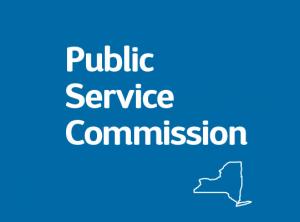New York Institutes New DER Consumer Protections

Building on the lessons learned in the competitive energy service company (ESCO) sector, the New York Public Service Commission moved to institute new consumer protection standards for the supply of distributed energy resources (DERs).
The commission stated that it was trying to preempt fraudulent practices from occurring in the DER market as they had in retail energy choice markets with ESCOs. After numerous complaints about ESCO overcharges, misleading marketing tactics, cost saving claims that did not materialize, and allegations of slamming and cramming, the commission had implemented strict consumer protection rules for ESCOs a couple of years ago. Those regulations covered such topics as ESCO registration requirements, contract terms, advertising limits, and handling of complaints, among other matters.
In extending the same kinds of protections to consumers interested in participating in the DER market, the commission deemed it imperative that DER providers be subject to similar requirements as ESCOs so as to assure the “integrity of the budding DER markets.” The new DER rules pertain to everything from boilerplate disclosure statements to the review of marketing plans to procedures for addressing complaints to penalties for failure to comply with the rules. The commission set forth six particular requirements DER suppliers must follow:
- Formal registration with the state, inclusive of the submission of sample contracts and billing formats for generally available services;
- Listing in the registration application any criminal or regulatory sanctions levied against the company or its senior officers;
- Execution of service contracts using plain language and the same language in which the service had been marketed;
- Offering of cost and bill savings on the basis of a price forecast that relies on a three-year average of actual historical utility rates or some other generally accepted forecasting model;
- Provision to the commission of information on customer complaints and submission to commission staff audits or reviews of the company’s books, accounts, contracts, or other records or documents, as requested; and
- Notice to residential customers that they have three business days after signing a contract to cancel the agreement.
The commission said that the consumer protection regulations will be in force with respect to such DER purveyors as rooftop solar vendors and providers of on-site generating systems for small businesses, as well as larger community solar projects.
The commission added that inasmuch as DER plays a critical role in New York’s Reforming the Energy Vision (REV) initiative, there is every reason to think that opportunities for DER services will grow. The commission related that while DERs are key to achieving the REV’s objectives of a cleaner, greener, and more resilient power system in the state, consumers will not benefit from such if at the same time DER providers are entering the market via fraudulent and dishonest means.
The associated consumer protection standards are therefore crucial for assuring the success of the REV, the commission said. Re Regulation and Oversight of Distributed Energy Resource Providers and Products, Case 15-M-0180, Oct. 19, 2017 (N.Y.P.S.C.).



